G.A.S. Foundation is pleased to partner with Spelman College, and the Atlanta University Center Art History + Curatorial Studies Collective (AUC Collective) to facilitate internships for three of its student members under our Annotations programme. Housed within the Department of Art & Visual Culture at Spelman College, this programme nurtures future curators, art historians, museum professionals and artists with the aim of shaping the future of the art world and positioning the Atlanta University Center as the leading incubator of African American professionals in these fields.
Selected following a call for applications within the collective, Amaya Loubeau, Neil Grasty, and Robyn Simpson emerged as recipients of the G.A.S. Foundation Library and Archival Research Internship. Bursting with curiosity to explore the African cultural landscape, the interns alongside a cohort of their Lagos-based peers in the Annotations Research Programme will investigate Pan African Festivals through the lens of African archival collections such as the G.A.S. Library and Picton Archive.
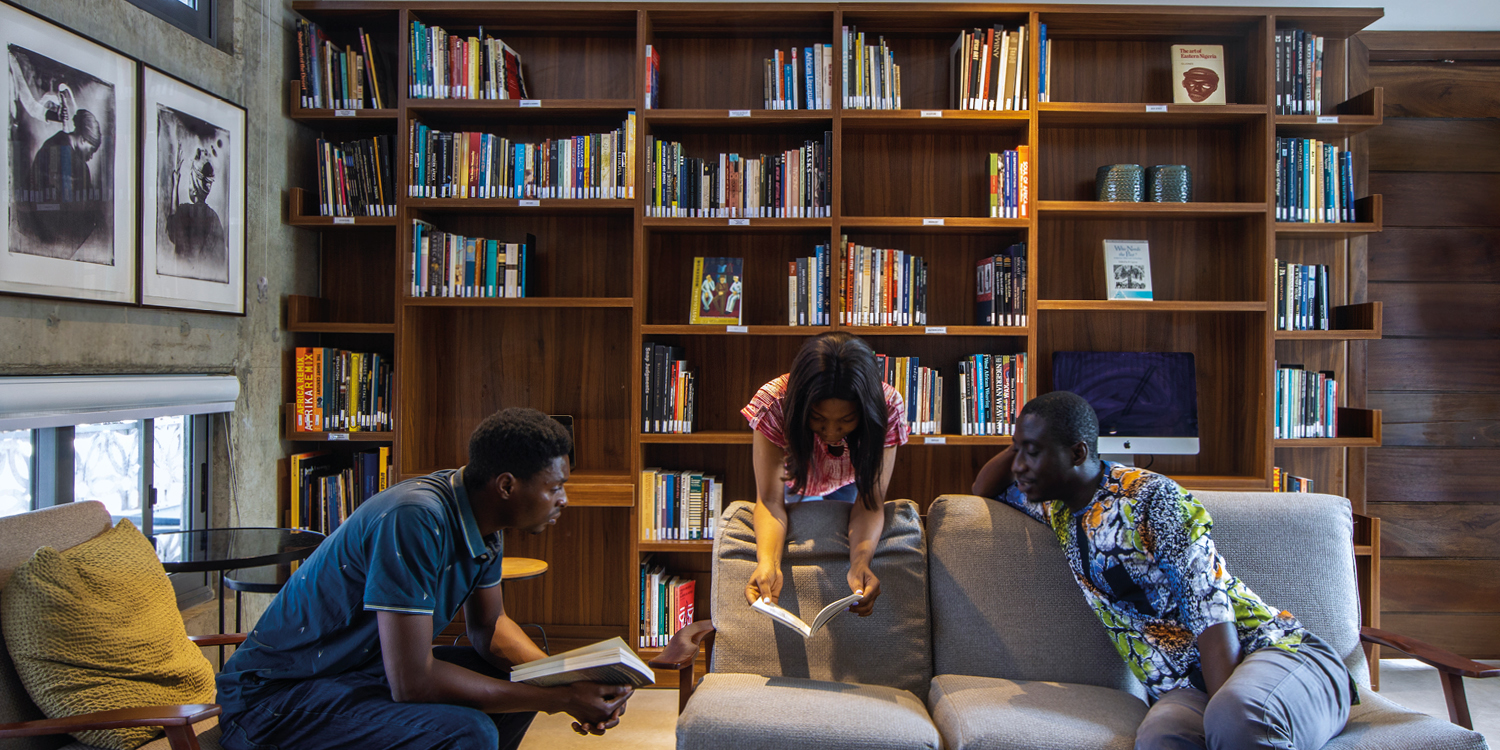 G.A.S. Library and Picton Archive, Lagos. Photographer: Andrew Esiebo
G.A.S. Library and Picton Archive, Lagos. Photographer: Andrew Esiebo
What is the current focus of your practice?
Amaya: I am a rising Junior Art History Major with minors in Documentary, Filmmaking, Theater and Performance attending Spelman College. My area of focus in my studies is African Art and Afrofutursim within the arts and film. I want to use my practice to redefine Black narratives and portrayals within the arts and film, showcasing the richness and diversity of Black experiences and voices.
Neil: The focus of my practice is research and curatorial work. In prior projects, I have primarily focused on African diasporic art, Colonial Africa, early 20th century French Decorative Arts, and African American art.
Robyn: As an undergraduate student and a young professional, the current focus of my practice centres on the intersection of Education and Creativity. I am interested in Art as a vehicle for learning and storytelling. As I earn my Art History and Curatorial Studies degree, I am looking at how Contemporary Art is contextualised by history and vice versa. I am specifically interested in studying African Diasporic Art and disseminating knowledge about Black art through the lens of culture and history through research, curriculum, and curatorial practice.
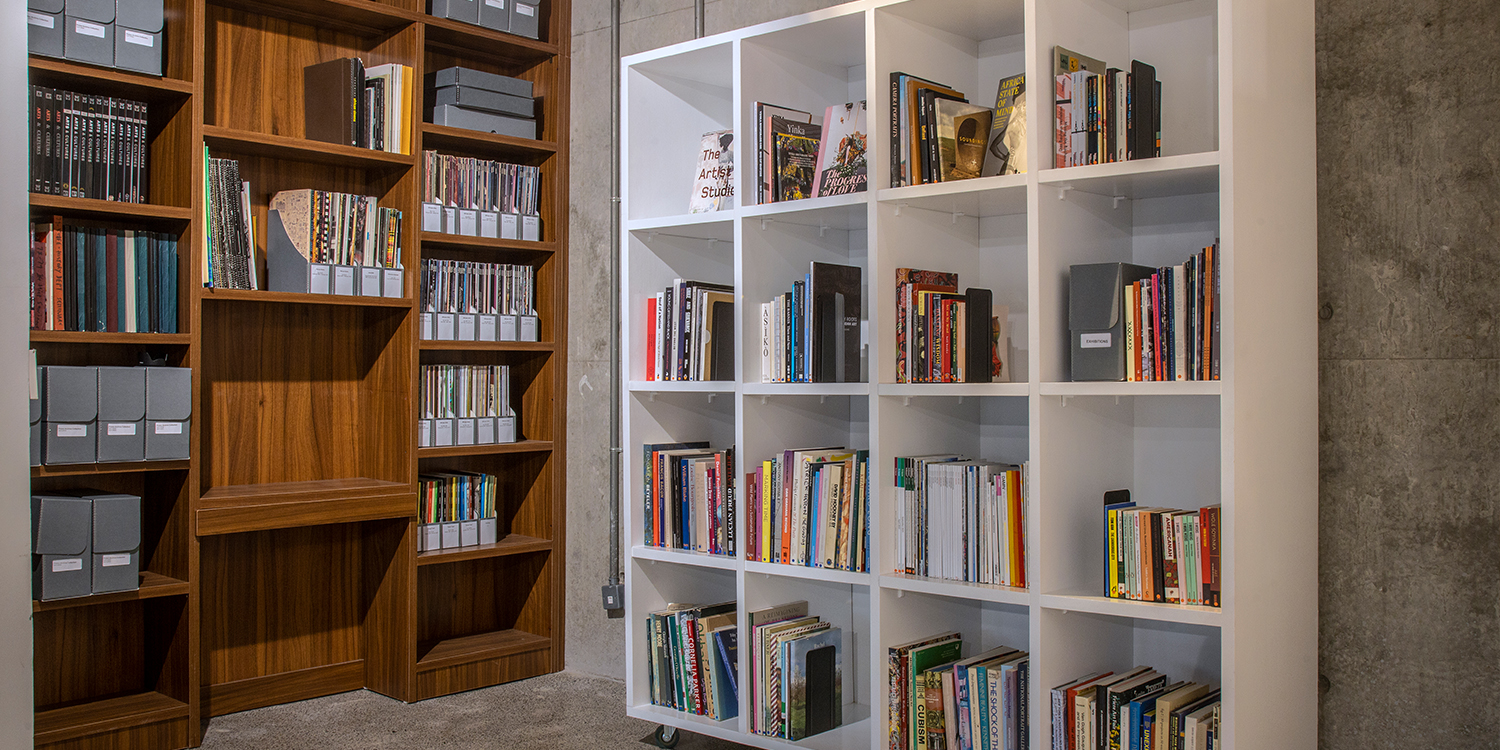 G.A.S. Library and Picton Archive, Lagos. Photographer: Andrew Esiebo.
G.A.S. Library and Picton Archive, Lagos. Photographer: Andrew Esiebo.
What drew you to apply for this opportunity and how do you think it will inform your wider practice?
Amaya: Last summer, I had the honour of collaborating with the Children’s Defense Fund on a project involving the Nambu African Art collection housed at the historic Alex Haley Farm. This experience was transformative, sparking a deep interest in African art and cultures as I appraised, curated, and preserved these remarkable artefacts. Immersed in the rich cultures represented within the collection, I was captivated by the narratives and histories they conveyed.
This experience ignited a desire to delve deeper into the world of African art and explore its diverse disciplines. I was particularly drawn to this current opportunity because it offers a chance to expand my knowledge of African art history while delving into archival work and research. Secondly, immersing in Nigeria's vibrant art scene and culture promises a rich learning experience.
Neil: The G.A.S. Library and Picton Archive drew me to this opportunity. Engaging this collection as an intern will allow me to engage my interests in both traditional and contemporary African art. The internship project on Festac ’77 also drew me to apply to this opportunity. Through this internship, I intend to have a fuller understanding of African art and Pan Africanism.
Robyn: I was drawn to apply for this opportunity to gain library and archival research experience and learn about Black Art outside of an American context. I was so excited by the opportunity to immerse myself in the Lagos art scene and learn from a different culture.
RESIDENCY ARCHIVE
EVENT: Reading Pan-African Festivals - Archival Encounters at G.A.S.
Event Date: 19th July 2024
Five weeks into the Annotations Programme, G.A.S. Foundation invited guests to share in our learnings on archival practice, and explore research into Pan-African Festivals such as FESTAC '77. We were joined for a reading session hosted by our Research Associates and Interns-in-Residence, developed in response to the mentorship of Archival Consciousness, who work with archivists and institutions to make library collections more accessible.
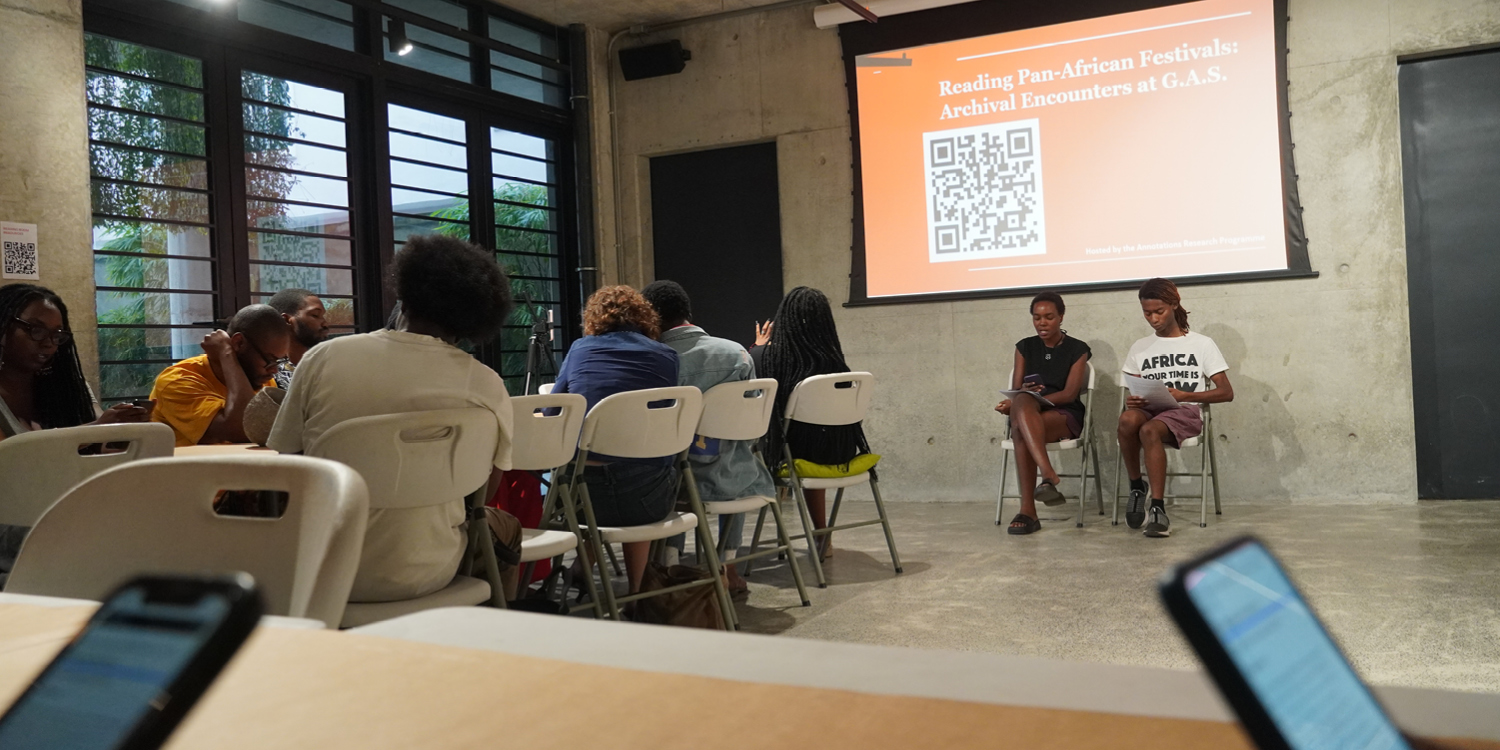 Yosola Adeniran and Neil Grasty lead a group reading at G.A.S. Foundation.
Yosola Adeniran and Neil Grasty lead a group reading at G.A.S. Foundation.
EVENT: Into the Timeline: A Research Collage of Pan-African Festivals
Event Date: 25th July 2024
Into the Timeline: A Research Collage of Pan-African Festivals was the second and final public activation of G.A.S. Foundation’s Annotations Programme curated by Adeyosola Adeniran, Amaya Loubeau, Neil Grasty, Osayame Emokpae-Ozoro, Robyn Simpson, and Ufuoma Ogbemudje with the Co-Curators of the Annotations Programme, Naima Hassan and Maryam Kazeem. This evening invited the public to view the research outcomes of the Annotations programme which investigated Pan-African Festivals through the lens of African archival collections. Featuring thematically zoned research walls, a presentation, and a guided tour of the research room, viewers interrogated the sentiment and experience of this special era of Pan-African thought. The associates presented Timeline: Dakar ’66, Algiers ’69, Kinshasa ’74, and Lagos ‘77, a digital timeline of Pan-African Festivals, showcasing insights from archival encounters in both physical and digital landscapes. The event concluded with a panel discussion moderated by Maryam Kazeem, a co-curator of the programme.
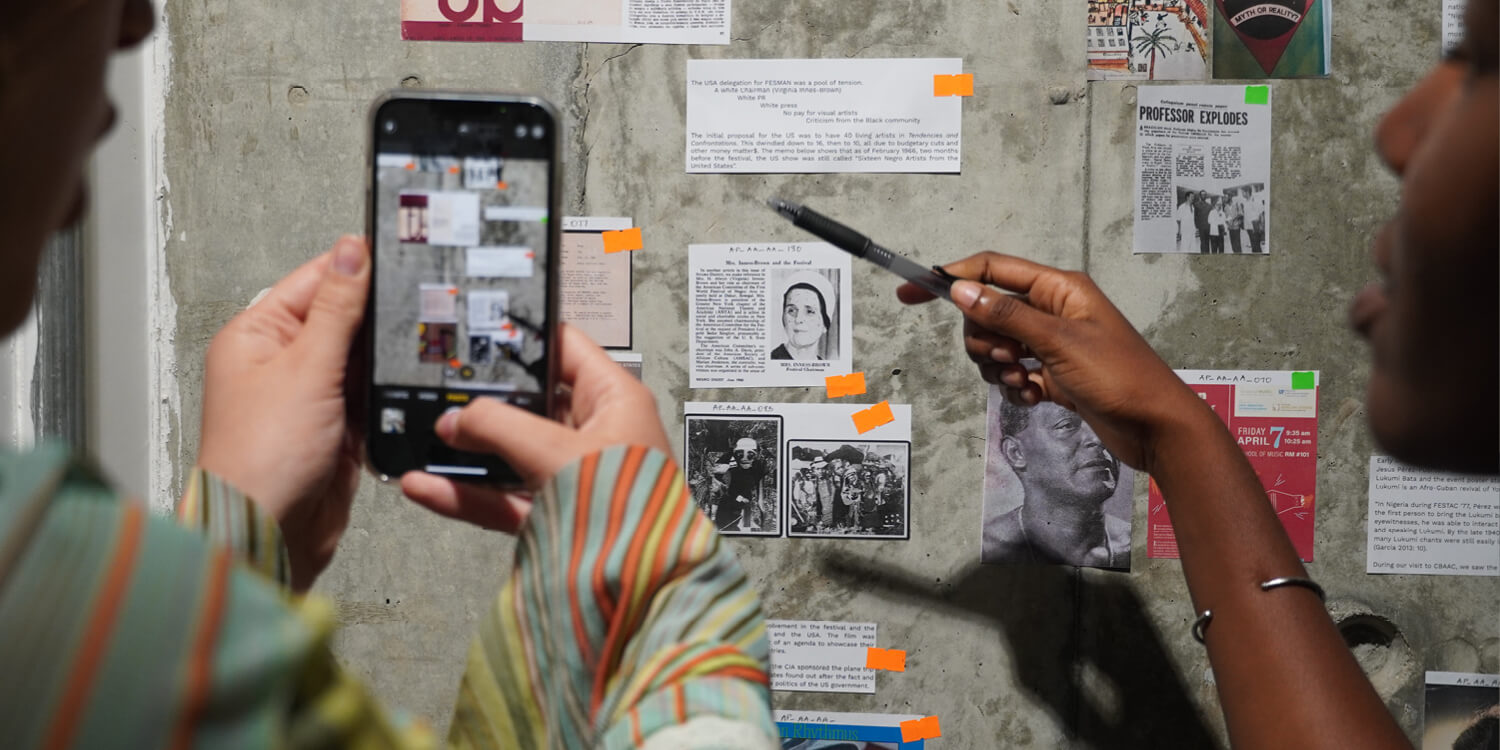
ABOUT THE INTERNS
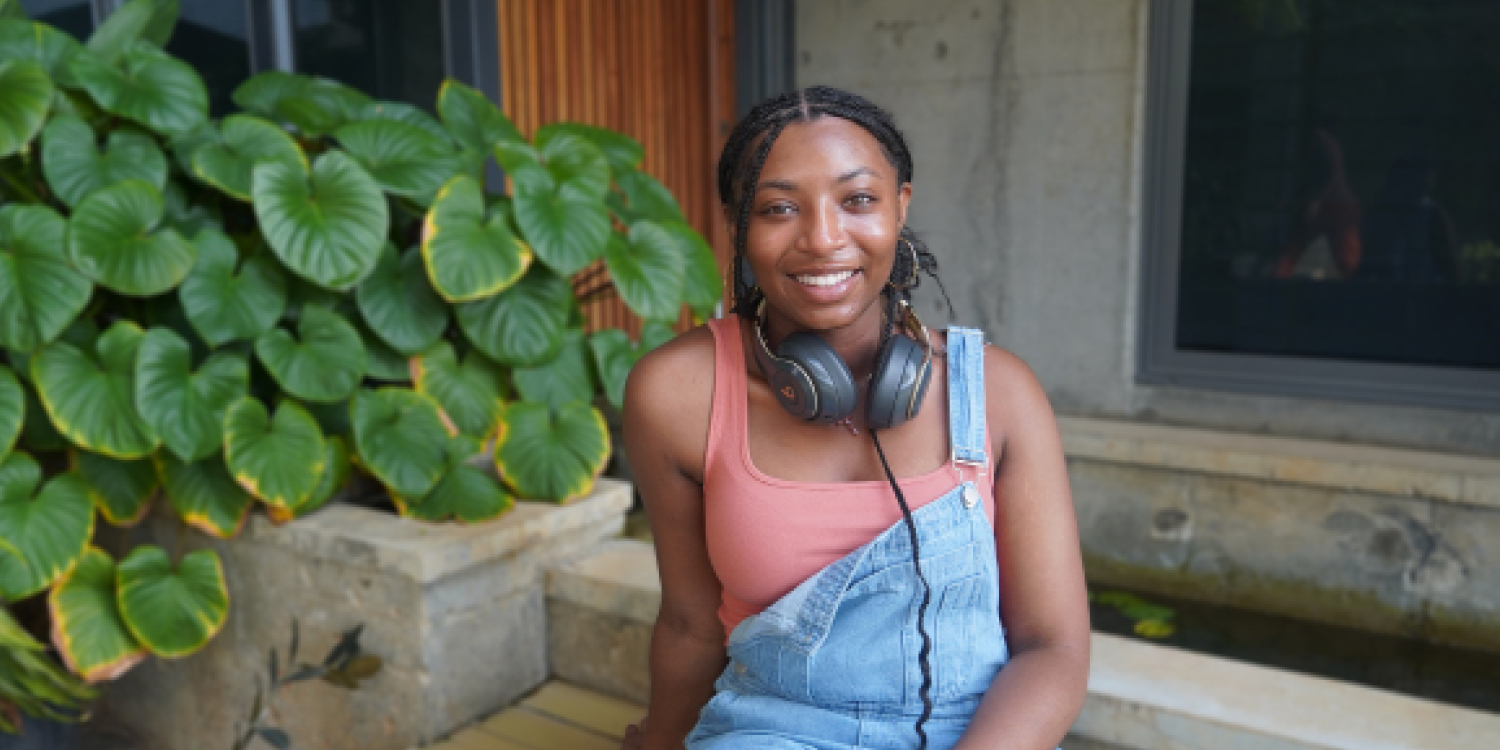
AMAYA LOUBEAU is a rising Junior Art History major and a Documentary Filmmaking and Theater and Performance double minor attending Spelman College. She is an Ethel Gillbi Waddell Honors Program Scholar and an Alpha Lambda Delta Honors Society member. Engaged in civic leadership, she serves as a Bonner Scholar, committed to public service within her community. Amaya is an aspiring visual artist, creating and curating an exhibit of her works that focuses on Black Female Empowerment and bringing awareness to issues within the Black community. Last summer, she interned with the Children’s Defense Fund at the historic Alex Haley Farm. Here, she collaborated with lead appraisers to evaluate a significant collection of African art housed within the Estate of acclaimed African American writer Alex Haley, known for his seminal work, Roots.
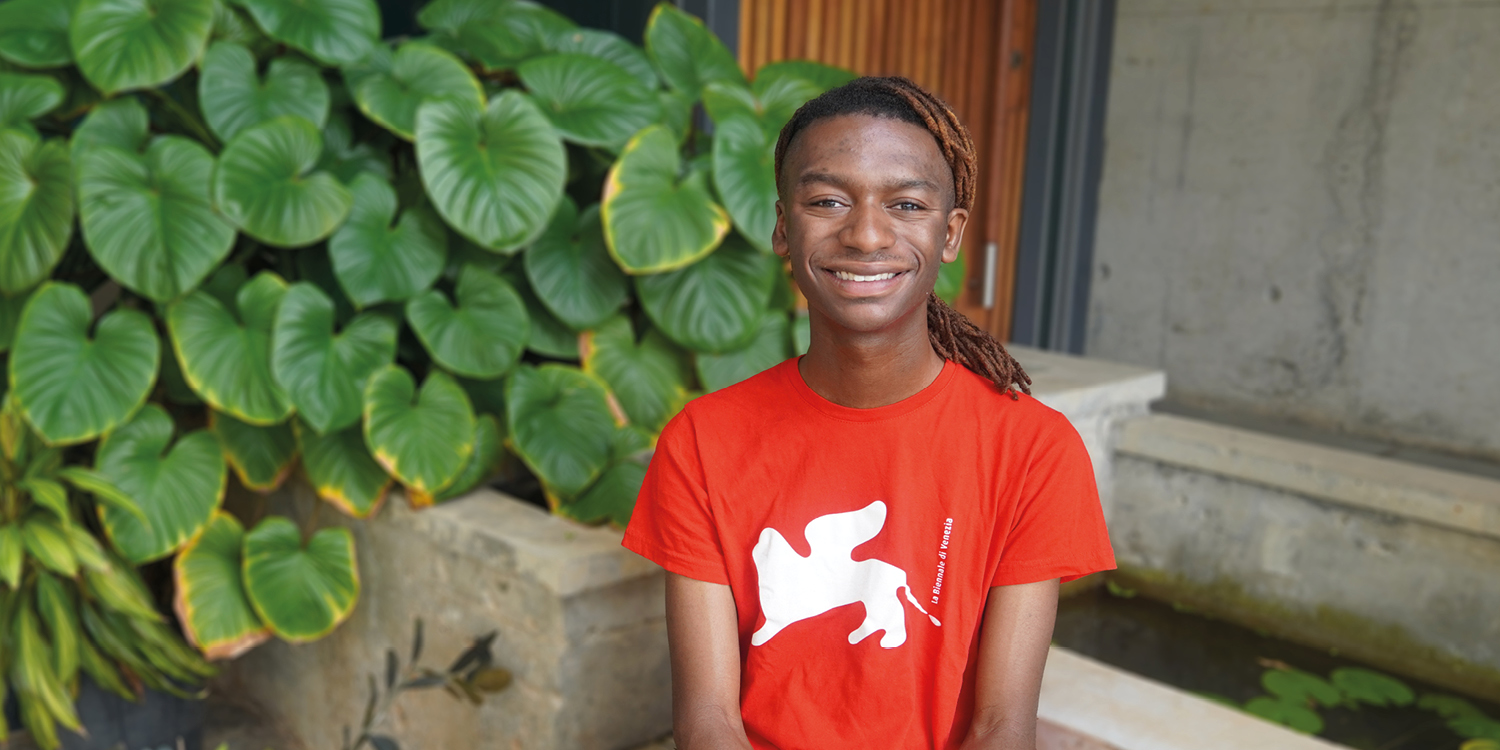
NEIL GRASTY is a 2024 Magna Cum Laude and Phi Beta Kappa graduate of Morehouse College. At Morehouse he majored in Art History with a minor in French. From 2022 to 2024, he served as an UNCF/Mellon Mays Undergraduate Fellow. His UNCF/Mellon Mays research and senior thesis entitled Living with Empire: Africa and Art Deco traces the connections between French Art Deco and Africa. In addition to this fellowship, from 2022 till 2024 he has served as a curatorial intern within the High Museum of Art’s Decorative Arts and Design Department. He has held previous internship positions at the Metropolitan Museum of Art (2023), Getty Research Institute (2021), and the Association of Research Institutes in Art History (2020).
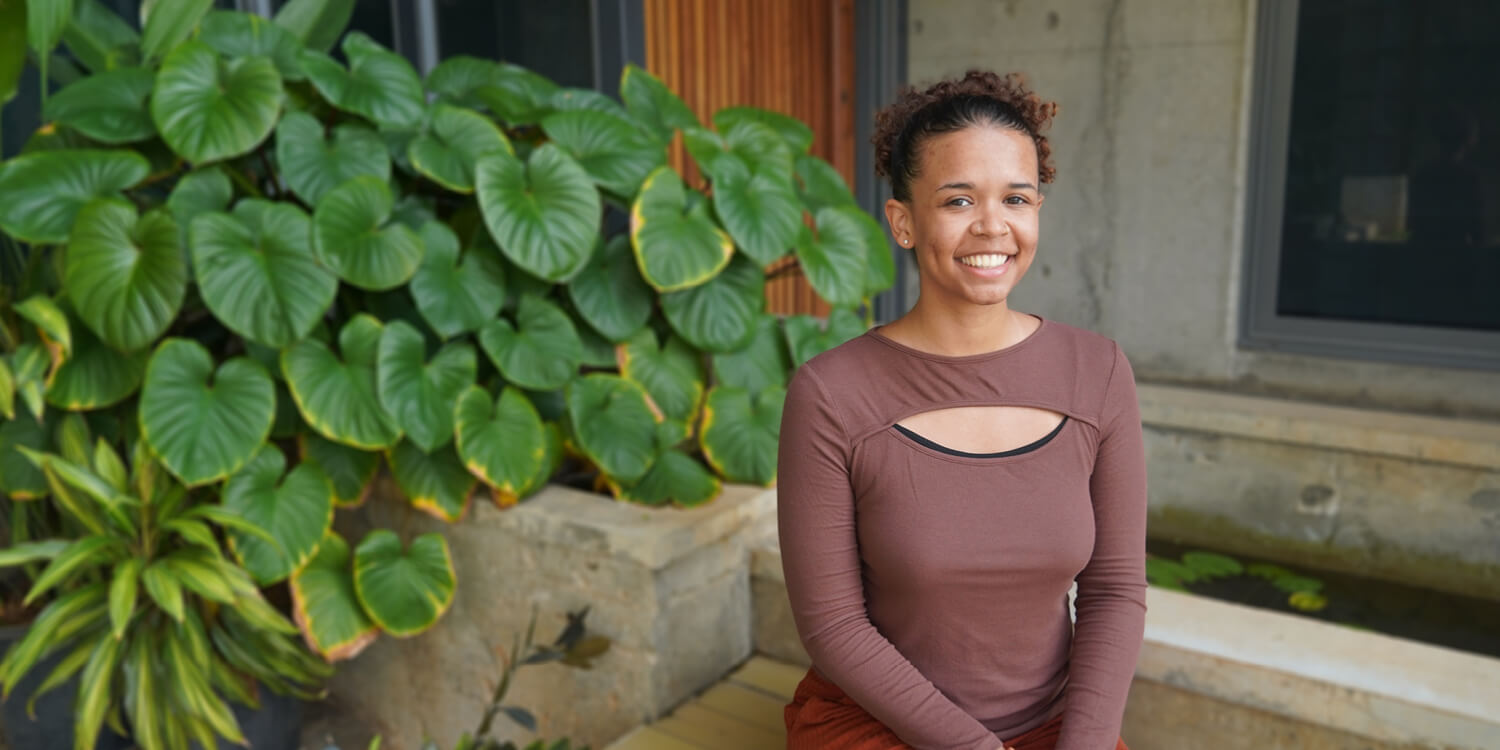
Hailing from Las Vegas, Nevada, ROBYN SIMPSON is a third-year student at Spelman College, pursuing an undergraduate degree in Art History with a minor in Curatorial studies. She is an Education Fellow at the Museum of African Diaspora and a recipient of the Alice L. Walton Foundation Art History Scholarship. At Spelman, Robyn is a member of the AUC Art History + Curatorial Studies Collective, where she has had the opportunity to visit cities such as New York, Chicago, San Francisco, and Venice, Italy, to meet with industry professionals, attend conferences, and immerse herself within the different art ecosystems. A lover of Black Art, Robyn is incredibly excited to continue her journey with the G.A.S. Foundation as a summer intern.
These Archival Practice Internships were generously supported by Spelman College and the Atlanta University Center Art History + Curatorial Studies Collective (AUC Collective)
